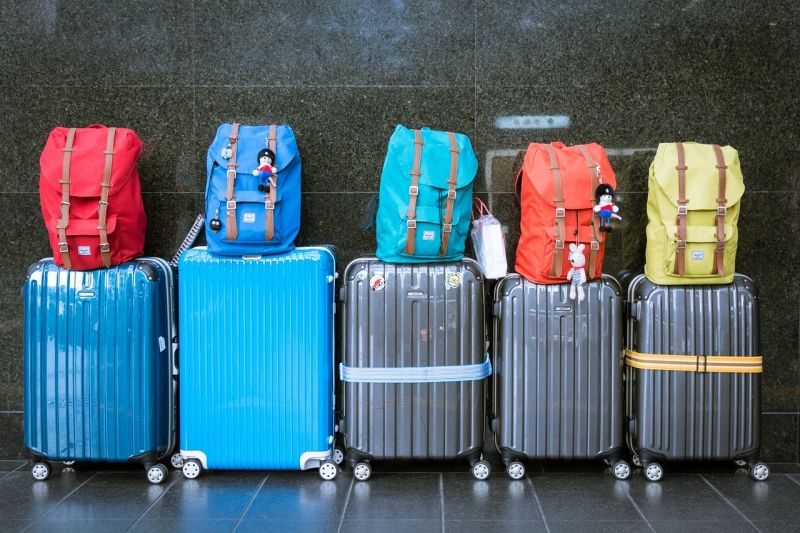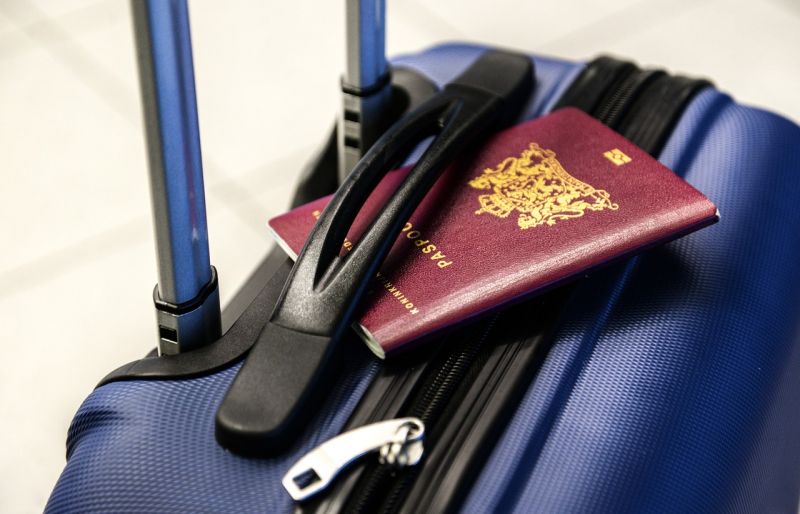Montreal Convention: Your Baggage Rights and Compensation
Claim up to US$1,728 (€1,599) for lost, damaged, or delayed luggage.
We've been assisting passengers for more than 7 years. Join more than 240,000 passengers who’ve trusted AirAdvisor with their airline compensation claims.
Reviews.io 4.6/5 based on 14,429 reviews
Have you ever wondered about your rights when you’re flying internationally?
The Montreal Convention is a treaty that covers countless international passengers each year. While its scope covers flight delays and cancellations as well as bodily damages, we’re going to focus on how this treaty covers your delayed, lost, or damaged luggage and what compensation you’re entitled to.
What is the Montreal Convention?
The Montreal Convention (MC99)1 is a global treaty signed in 1999 and put into practice in 2003. It enforces airline liability for damages to physical health, flight delays, cancellations, and the loss and/or damage to luggage and cargo during international flight travel.
In many ways, the Montreal Convention could be seen as an updated version of the Warsaw Convention originally signed in 1929, designed to be a single, unified treaty that would govern airline liability worldwide.
For you as a passenger, this means that as long as you can prove financial loss caused by airlines for lost, damaged, or delayed luggage, the Montreal Convention gives you the right to seek compensation.
Key Points
- The Montreal Convention is a treaty that covers passengers on international flights only (it does not apply to domestic travel).
- Under the Montreal Convention, airlines are responsible for lost, damaged, and delayed baggage.
- For baggage problems, you could be compensated up to US$1,730 / €1,620 / £1,395 / $2,336 CAD regardless of the value of your luggage.
- The Montreal Convention covers over 135 countries, including: USA, UK, EU, Mexico, Canada, India.
- Important Time limits for filing baggage claims (late claims will be dismissed):
Delayed baggage: within 21 days from the arrival of your bags.
Lost Baggage:2 years to claim, however, we strongly advise complaining shortly after the airline considers it lost, typically after 14-21 days.
Damaged baggage: within 7 days from baggage receipt. - Receipts are important to present to the airline to get reimbursement for your expenses if bags were delayed.
When does it apply
The Montreal Convention applies to airline passengers who fly between two countries that have ratified the treaty. This treaty only covers international trips, so if you’re flying within one country, the Montreal Convention would not apply.
However, if your departure and final destination were in one country, but you had a stopover in a different country, then you would be covered by the Montreal Convention. For example, if you were flying between two cities in the US, then the Montreal Convention would not apply.
On the other hand, if you started from a US city, had a stop-over in Toronto, and then continued on to your final destination in another US city, then your travel would be covered by the Montreal Convention.
Pro Tip: If your flight has one or more connections and you’re flying with different airlines, the carrier of the last leg of your flight is responsible for any lost, damaged, or delayed luggage. |
Occasionally, a flight might occur between two countries where only one is ratified under the Montreal Convention while the other is not. In these rare circumstances, the earlier Warsaw Convention2 rules would go into effect.
Baggage claims, under the Warsaw Convention, are similar to the Montreal Convention but with lower liability limits set at $20 USD per kilogram of checked luggage weight.

Baggage Compensation and Reimbursement under The Montreal Convention
When you fly between two countries covered under this treaty, the airline takes responsibility for your luggage - both checked and unchecked. This goes into effect from the moment you check your bags until you retrieve them at your destination. If your luggage is not delivered to you in the same condition and at the same time that you arrive at your destination, then the rules of the Montreal Convention would apply:
- Compensation is payable if your baggage is lost or damaged.
- Reimbursement is mandated if your baggage is delayed.
As far as the amount of compensation, the airline’s liability for different kinds of luggage claims is limited to a maximum of 1,288 Special Drawing Rights (SDR)3.
What is SDR?
An SDR is the combined value of various currencies, and currently (January 2023) is roughly equivalent to US $1,730. This limit is non negotiable, so if your bags are lost or damaged, you will only be compensated for up to 1,288 SDR or US$1,730 / €1,620 / £1,395 / $2,336 CAD regardless of the value of your luggage.
What is not covered?
Luggage that is valued at more than US$1,730 will not be covered under the rules of the Montreal Convention. If you need to travel with items that exceed US$1,730 (€1,620), then you should consider buying travel insurance for added protection.
Pro Tip: The Montreal Convention's international baggage liability cap undergoes periodic adjustments for inflation every five years, overseen by the International Civil Aviation Organization (ICAO)4. Airlines typically reflect this in their policies.
Baggage Delay
For baggage delays, it’s important to clarify that a delay is defined as any luggage that does not arrive at your destination the same time you do. Even if your luggage arrives an hour after you, it is still considered delayed.
Luggage is only considered lost when it has not been delivered within 21 days, but this time frame can be much shorter for specific airlines.
Under the Montreal Convention, the airline is responsible for baggage delays unless the airline can prove that it did everything it could to prevent the delay, or that it was impossible to avoid (think situations like natural disasters).
Luggage Loss
When it comes to lost baggage, it’s important to understand that luggage is only considered officially lost if the airline acknowledges it as lost or if 21 days have passed since the day it should have arrived.
Each airline has a specific policy to determine when baggage is officially lost. Most airlines will declare a bag officially lost if it has not been returned to you between 5 and 14 days, so check with your airline for more information.
If 21 days have elapsed, and your bags are deemed officially lost, then the airline is responsible for compensating you for the value of your lost bags up to US$1,730.
Baggage Damage or Destruction
The airline is responsible for checked baggage that is damaged or destroyed. Once again, the airline is responsible for your baggage from the moment you check it until the moment you retrieve it at your final destination.
But remember, under the Montreal Convention, the airline’s liability is limited to no more than US$1,730 (£1,395).
So, if you’re planning to travel with high value items or priceless ones, like a musical instrument or your father’s journals, you might want to think twice about checking them.
However, if traveling with valuable items is unavoidable, consider buying travel or trip interruption insurance that will cover the cost of your belongings if they are damaged. If you have expensive jewelry that you need to travel with, don’t check it. Instead, keep it with you in a carry-on bag.

What to do if your luggage is delayed, lost, or damaged
So, now that you know your rights with regard to baggage on international flights, you might be wondering how you can enforce these rights. It’s important to take certain steps immediately when you learn that you have a baggage issue. Following these steps will help your case if you plan to seek compensation or reimbursement of incurred expenses.
Delayed Luggage
If you’re flying internationally and your baggage is delayed, here are the steps you should take:
- File a report with your airline at the airport or at the Lost & Found if airline staff is unavailable. Remember to keep a copy of your report and all other relevant paperwork including your original flight itinerary or boarding pass(es).
- Ensure that your baggage incident report is properly registered, and that you get a reference number assigned to your case. The reference number will be essential if you raise a claim with the airline.
- Submit a written complaint to the airline within 21 days of getting your luggage back. If you’ve used different airlines, file with the one that covered the last leg of your flight.
- Be sure to include all relevant details and copies of receipts for any items you’re seeking reimbursement for.
- Keep purchases within reason: If you’ve had to buy anything because of your baggage delay (like toiletries or clothes), you may be eligible for reimbursement. But keep in mind that you can’t go on a spending spree and still be reimbursed. It’s your responsibility to keep your purchases within reason.
Learn more about baggage claim compensation
Lost Luggage
For lost luggage on an international flight, you’ll want to follow similar steps as you would for delayed luggage.
- Report your lost luggage with the airline or at the airport Lost & Found if airline staff are not available. You should do this as soon as you realize that it hasn’t arrived with you.
- When you make the report, make sure it is properly registered and that you are given a reference number. This reference number will be essential if you raise a claim with the airline.
- If your luggage is officially lost, contact the airline in writing, and tell them what you’ve lost and its estimated value. Time frames, for what is considered a lost bag, vary from airline to airline and can be as little as 5 or as many as 21 days. Refer to your airline for their specific policy.
- When you contact the airline, you can also tell them that you are issuing a complaint based on Article 17 of the Montreal Convention1.
- Article 17 states that if the airline admits to losing your checked luggage, or it has not arrived within 21 days from the date it should have arrived, then you are entitled to compensation up to US$1,730 / €1,620 / £1,395 / $2,336 CAD regardless of the value of your luggage.
- Under the Montreal Convention, you have 2 years to file a claim for officially lost luggage.
Damaged Luggage
For damaged luggage, follow these steps as soon as possible after you realize that your luggage has suffered damage:
- Report the damage to the airline, ideally while you’re still at the airport. You have a 7-day window from the time you receive your luggage to report damage.
- Gather as much evidence as possible to back up your claim. Take photos, and if you have to purchase anything to replace what’s been damaged, make sure you keep the receipts.
- Remember that the maximum amount of the Montreal Convention is capped at US$1,730 (€1,620).
- If your baggage was damaged after TSA inspection, then the airline is not responsible.
- If the TSA inspected your luggage, they would mark your bag so that you know it was searched. So, if any damage was incurred during this process, your only option would be to make a claim with your travel insurance. If you don’t have travel insurance, check with your credit card. Some cards offer complimentary travel insurance that would cover damage caused by the TSA.
Which countries are covered under the Montreal Convention?
The Montreal Convention currently has a coalition of over 135 countries and territories that have agreed to its terms. Interestingly, the treaty is recognized by all member states of the European Union and a majority of the UN member states.
This harmonious alliance means that almost every major aviation hub around the globe is covered under its rules.
Countries that have ratified the Montreal Convention include the following:
- US and Canada, UK and all European countries, including Ukraine, Russia
- South America including: Mexico, Brazil, Chile, Argentina, and Peru
- Asia including China, India, Japan, Korea, Thailand, and Sri Lanka.
- Middle Eastern countries including Saudi Arabia, UAE and all GCC5 countries, Turkey, and Israel.
- Oceania including: Australia, Indonesia, New Zealand, and Brunei
- Africa including South Africa and 22 other African Countries
You can find a complete list of countries who have ratified the Montreal Convention here.
AirAdvisor can help with Montreal Convention Claims
Filing claims under the Montreal Convention can be frustrating and complicated. Let AirAdvisor help!
Trusted by 240,000+ clients with a 98% success rate, you can trust AirAdvisor to help you get you the compensation you deserve! And the best part? It’s completely risk free!
Sources:
3 International Civil Aviation Organization (ICAO)
4 2019 Revised Limits of Liability Under the Montreal Convention of 1999


Flight Compensation Calculator:
Check if you are entitled to flight delay compensation in just 3 minutes.


